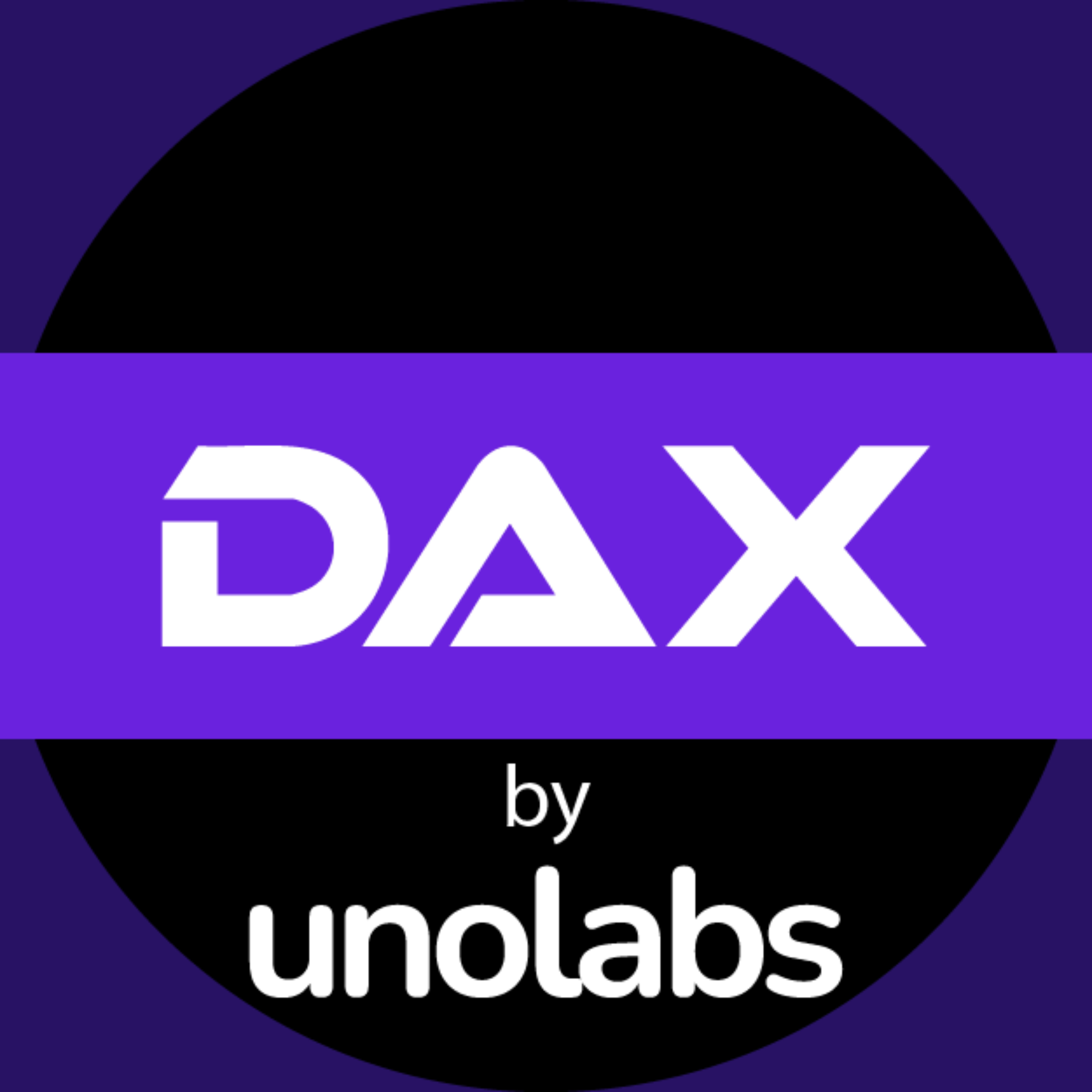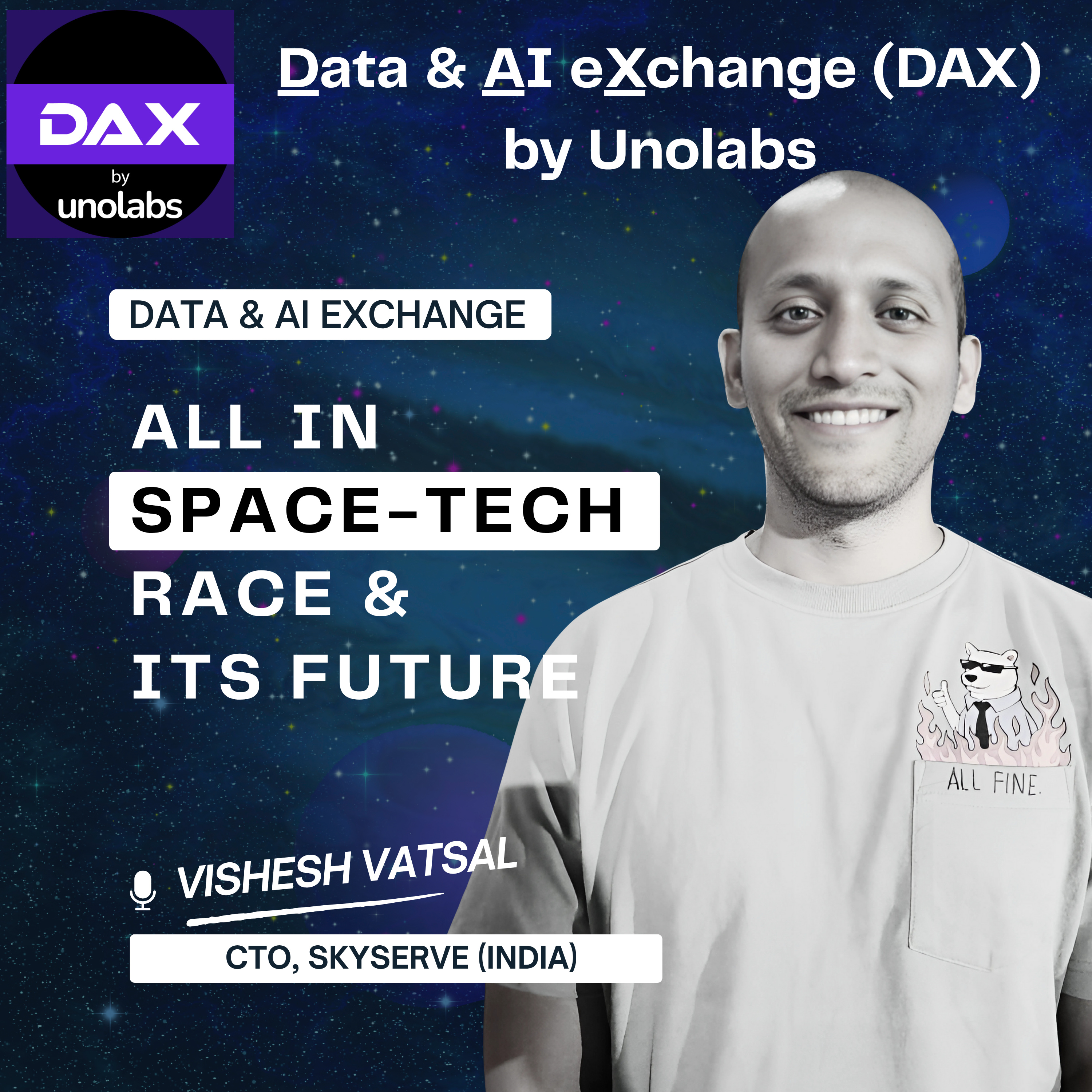Data and AI Exchange (DAX) by Unolabs

Data and AI Exchange (DAX) by Unolabs
Podcast Description
Welcome to Data and AI Exchange (DAX) by UnoLabs – the podcast for bold conversations in AI, data science, and enterprise tech. Hosted by Akshay Raj and Prateek Tandon, we explore the real stories, use cases, and controversies behind AI’s rise — from prompt engineering and agentic AI to ethical dilemmas and automation trends.
Expect:
– Deep-dive episodes (2x/month)
– Expert interviews and hot takes
– Enterprise use cases and career insights
– Shorts that simplify complex topics
Podcast Insights
Content Themes
The podcast focuses on contemporary themes in AI, data science, and enterprise technology, exploring use cases and ethical dilemmas; highlighted episodes include discussions on Vibe-Coding in banking, the implications of AI agents in workplace efficiency, and the evolution of roles due to agentic AI.

Welcome to Data and AI Exchange (DAX) by UnoLabs – the podcast for bold conversations in AI, data science, and enterprise tech. Hosted by Akshay Raj and Prateek Tandon, we explore the real stories, use cases, and controversies behind AI’s rise — from prompt engineering and agentic AI to ethical dilemmas and automation trends.
Expect:
– Deep-dive episodes (2x/month)
– Expert interviews and hot takes
– Enterprise use cases and career insights
– Shorts that simplify complex topics
#ArtificialIntelligence #FutureOfAI #DeepTech #SpaceTech #satellites
What if AI didn’t just power chatbots — but ran satellites, triaged disaster data in orbit, and one day hosted whole data-centres in space? Vishesh Vatsal (CTO, SkyServe) breaks it down.In this episode of Insider Opinion, Vishesh Vatsal — CTO at SkyServe, co-founder of Dfy Graviti, and an IIT Kanpur aerospace engineer — walks us through the near-term and moonshot futures of AI in space: onboard compute, satellite constellations, real-time disaster response, and the wild but plausible idea of data-centres in orbit. We also dig into hiring for deep tech, trust and governance, and practical use cases India should prioritize.Key takeaways- Onboard AI is already feasible — edge GPUs and compressed models make meaningful inference in orbit possible today.- Bandwidth + cost = need for local intelligence — send insights (kilobytes), not raw imagery (gigabytes).- Constellations change the game — frequency, spectrum and resolution improve, but orchestration & collision risk require smart autonomy.- High-value use case: disaster response — faster detection and targeted intervention can save lives.- Moonshot: moving some compute to space (solar-powered data centres) is logically possible and likely within our lifetimes.- Hiring for the AI future: mix of fundamentals + curiosity + at least one AI-skeptic/devil’s advocate on the team.- Governance warning: accelerate safeguards and alignment investment alongside capability development.00:00 — Will AI run satellites in 10 years?02:57 — Coders vs dreamers: hiring for deep tech06:12 — AI in space: from rovers to autonomy09:37 — Disaster response from orbit13:01 — Why space still fears autonomy15:56 — Constellations: frequency, spectrum & resolution20:55 — Moonshot: data centres in space 🚀24:59 — Avoiding collisions: AI & Kessler Syndrome30:06 — India’s role in the global AI race33:39 — Beyond space: AI for Bangalore traffic36:27 — Do you trust AI more than humans?38:40 — Future headline 2040: AI cures all diseases#EdgeComputing #DataCentres #DisasterResponse #UrbanTech #Constellations #RemoteSensing

Disclaimer
This podcast’s information is provided for general reference and was obtained from publicly accessible sources. The Podcast Collaborative neither produces nor verifies the content, accuracy, or suitability of this podcast. Views and opinions belong solely to the podcast creators and guests.
For a complete disclaimer, please see our Full Disclaimer on the archive page. The Podcast Collaborative bears no responsibility for the podcast’s themes, language, or overall content. Listener discretion is advised. Read our Terms of Use and Privacy Policy for more details.